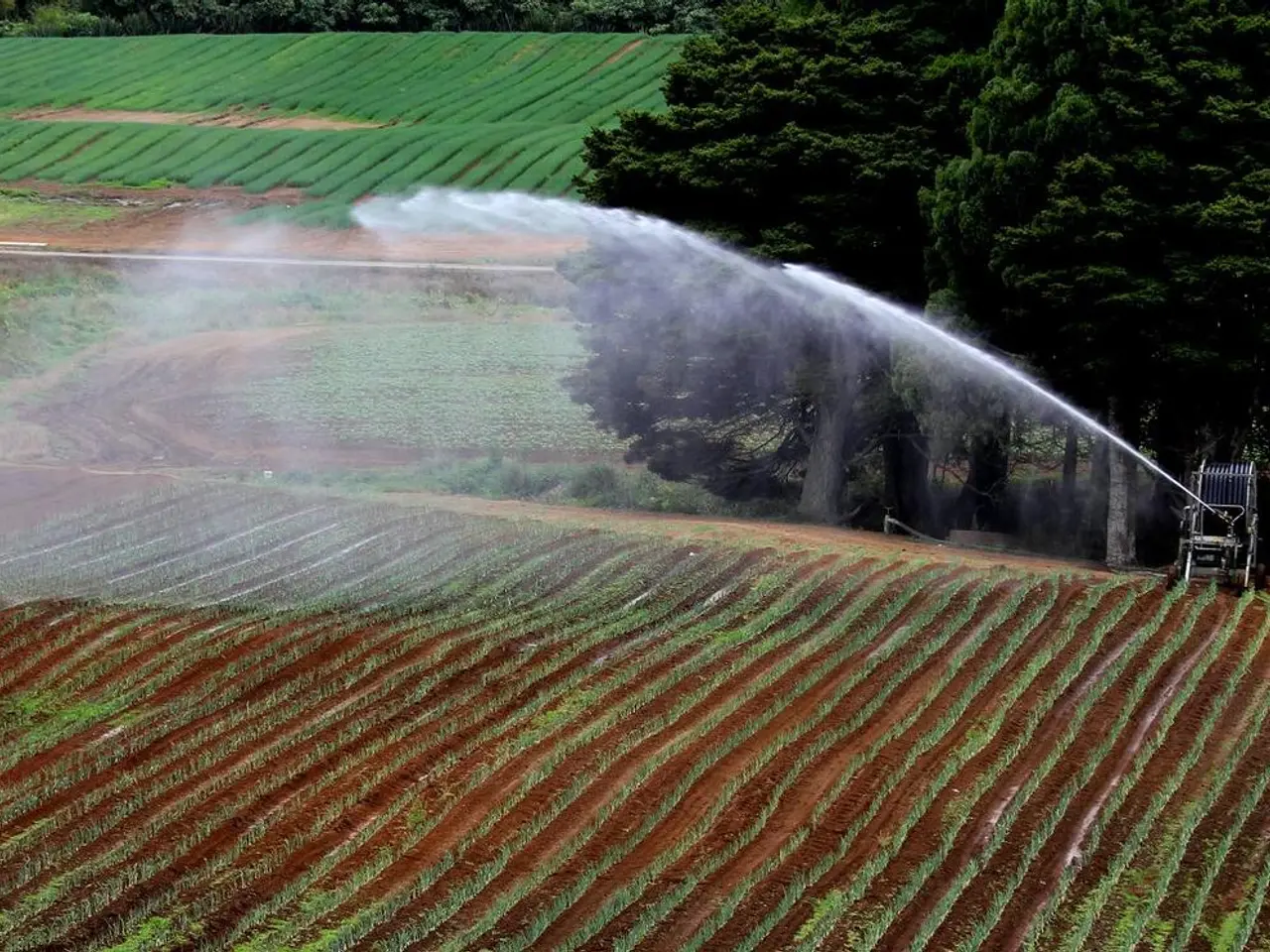Government Grants Approval for PM Dhan-Dhaanya Agriculture Scheme in 100 Districts with an Annual Budget of INR 240 Billion
The Union Cabinet, chaired by Prime Minister Narendra Modi, has approved the Prime Minister Dhan-Dhaanya Krishi Yojana (PMDDKY) on July 16, 2025. This flagship scheme, introduced in the Union Budget 2025-26, aims to enhance agriculture and allied sectors across India, particularly in districts facing long-standing agricultural challenges.
The PMDDKY will be implemented over a six-year period starting from the financial year 2025-26, with an annual outlay of Rs 24,000 crore. The scheme will be executed by combining 36 existing central government schemes across 11 departments, along with state-level programmes and private sector partnerships.
The key performance indicators (KPIs) for the PMDDKY focus on comprehensive progress in multiple priority areas. These KPIs align with the scheme's core objectives, such as increasing agricultural productivity, enhancing cropping intensity, improving credit flow to farmers, promoting diversified and sustainable cropping practices, expanding irrigation infrastructure, boosting post-harvest storage facilities, and ensuring convergence and implementation.
The KPIs will be monitored monthly on a digital dashboard for each of the 100 selected districts. These KPIs cover quantitative outputs like productivity and credit, qualitative progress like diversification and sustainability, and infrastructure development, enabling a holistic measure of agricultural growth in the targeted regions.
The PMDDKY is anticipated to enhance agricultural productivity, encourage value addition, generate rural employment, and improve access to both short- and long-term credit, benefiting approximately 1.7 crore farmers across the country. The scheme will initially be implemented in 100 districts, inspired by the NITI Aayog's Aspirational Districts Programme.
Central Nodal Officers will be assigned to each district to ensure consistent on-ground execution of the scheme. The selection of districts will be based on three key indicators: low agricultural productivity, low cropping intensity, and limited credit availability. Each state and union territory will have at least one district included in the scheme.
The District Agriculture and Allied Activities Plans will be aligned with national priorities such as crop diversification, water and soil conservation, agricultural self-sufficiency, and the promotion of natural and organic farming. Committees will be established at the district, state, and national levels for effective implementation and monitoring of the PMDDKY.
NITI Aayog will oversee and guide the planning process of the PMDDKY. The progress in each district will be monitored monthly using the real-time dashboard with 117 key performance indicators. This robust measurement framework aims to drive significant improvements in agricultural productivity and allied sectors in India's lagging agricultural districts. The PMDDKY is expected to fast-track development in the identified 100 districts and improve national averages across key agricultural indicators.
**Summary Table**
| Focus Area | Key Performance Indicators | |-------------------------------|----------------------------------------------------------------| | Agricultural Productivity | Crop yield increases, total farm output | | Cropping Intensity | Number of crops per unit area per year | | Credit Flow | Amount and accessibility of short- and long-term credit | | Sustainable Crop Practices | Adoption rates of diversified and eco-friendly cropping | | Irrigation Infrastructure | Area under assured irrigation, irrigation facilities upgraded | | Post-harvest Storage | Storage capacity and utilization at local levels | | Scheme Convergence & Delivery | Coordination among 36 schemes, departmental and state actions |
The Prime Minister Dhan-Dhaanya Krishi Yojana (PMDDKY) is a comprehensive agricultural scheme that aims to improve agricultural productivity and allied sectors according to general news. This scheme, launched by the Indian government, is expected to be executed through policy-and-legislation by combining 36 existing central government schemes (politics). The PMDDKY will be monitored using a robust measurement framework, including 117 key performance indicators (policy-and-legislation), to drive significant improvements in the targeted regions.






